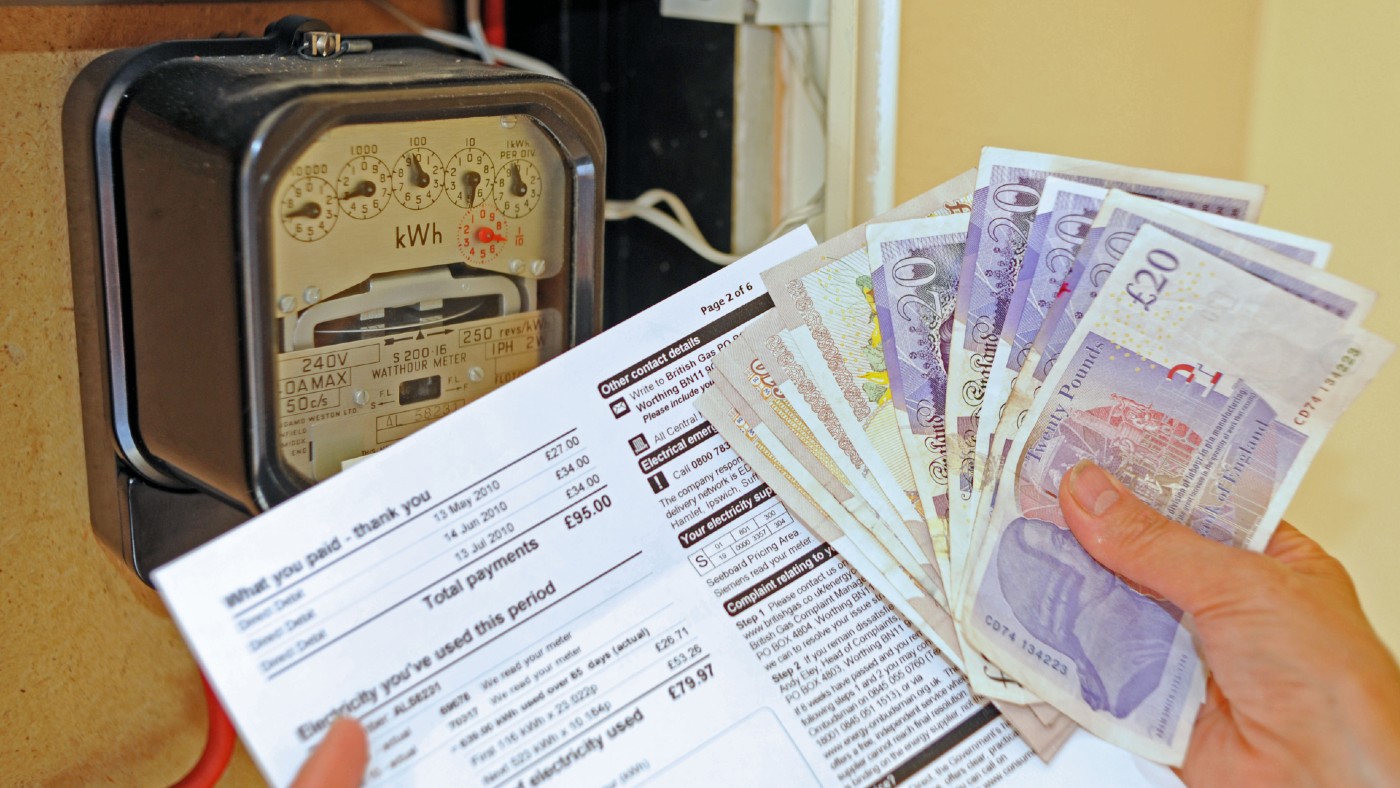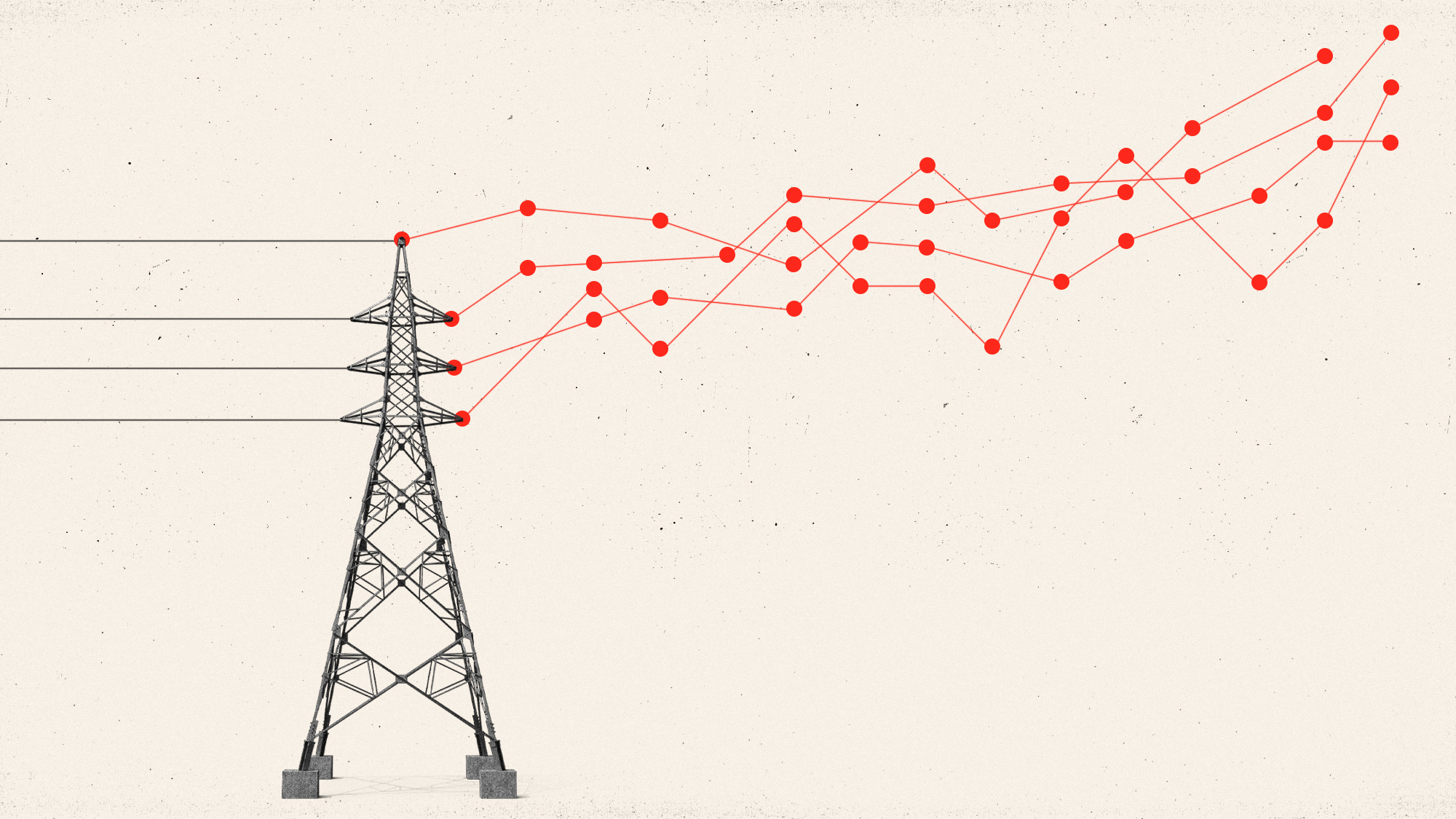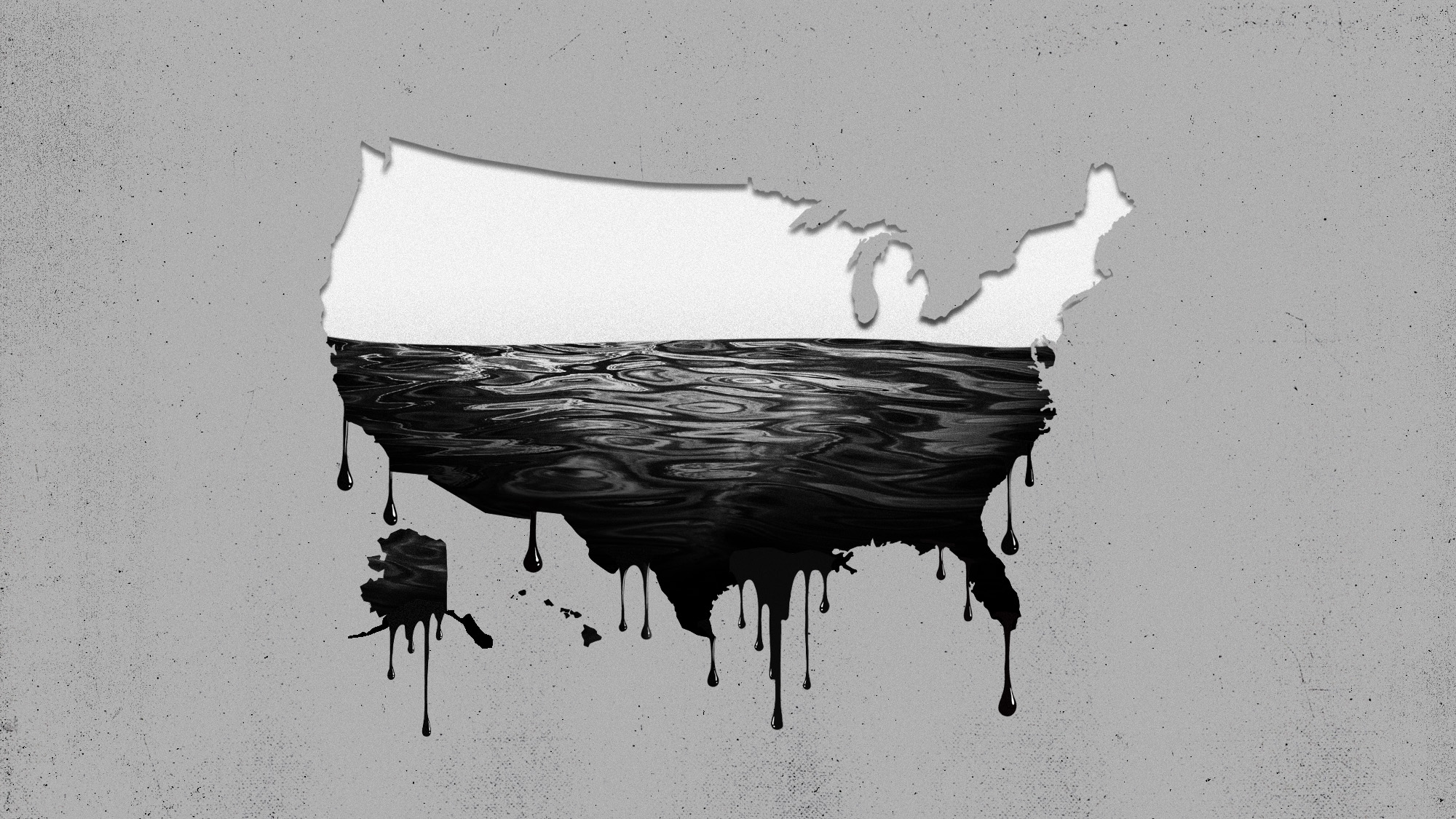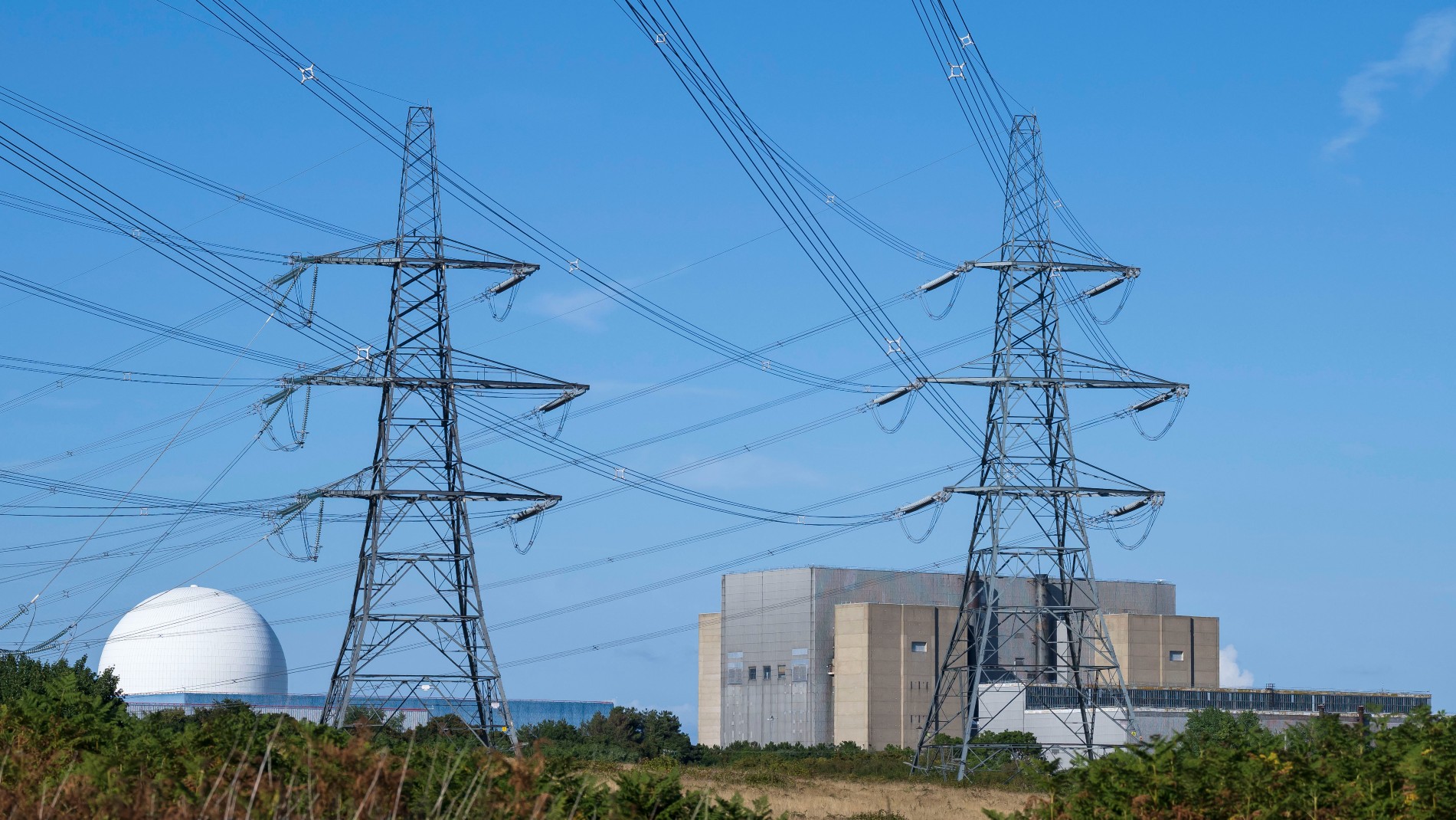What is the energy price cap and how high will it go next?
Limit on what energy companies can charge rises by 80% and will ‘remain very high’ in 2023

A free daily email with the biggest news stories of the day – and the best features from TheWeek.com
You are now subscribed
Your newsletter sign-up was successful
Ofgem has confirmed that energy bills for a typical household will rise in October from £1,971 to £3,549 a year, with further increases predicted next year.
Millions of Britons will see their energy bills rocket when the price of electricity rises from 28p per kWh to 52p on average between October and December, with gas increasing from 7p to 15p per kWh.
The record 80% October increase in the price cap, announced by the regulator Ofgem on Friday morning, means a typical default tariff customer will pay an extra £1,578. However, some forecasts have suggested bills could rise to £6,823 next year, said The Times.
The Week
Escape your echo chamber. Get the facts behind the news, plus analysis from multiple perspectives.

Sign up for The Week's Free Newsletters
From our morning news briefing to a weekly Good News Newsletter, get the best of The Week delivered directly to your inbox.
From our morning news briefing to a weekly Good News Newsletter, get the best of The Week delivered directly to your inbox.
Ofgem said predictions of future price cap levels should be treated with “extreme caution”, but no one is forecasting a return to previous prices anytime soon. “While the price cap is expected to fall later in 2023, it will remain very high,” said Sky News.
What is the energy price cap?
Every few months, the energy regulator Ofgem reviews the maximum price that suppliers in England, Wales and Scotland can charge domestic customers on a standard – or default – tariff. This is otherwise referred to as the “energy price cap”.
Introduced in 2019, the cap was “designed to eliminate the ‘loyalty penalty’ that many millions of customers were paying by not shopping around for cheaper deals”, said the Financial Times.
The cap sets the maximum price that energy companies can charge per kWh of gas and electricity, known as the unit rate, as well as the cost of getting power into your home, known as the standing charge. It serves as a cap on only the most expensive tariffs, and was designed to protect “those who are unaware of or are unsure of how to switch to a new deal or provider in order to save money”, the i news site said.
A free daily email with the biggest news stories of the day – and the best features from TheWeek.com
Millions of households opted for default standard variable tariffs that are covered by the cap when their previous fixed-price deals ended, “because there are no longer any cheaper fixed deals on offer”, The Times said in January. Standard variable tariffs were capped at £1,971 a year from 1 April.
Calling it a “price cap” is a “misnomer”, said Martin Lewis, founder of MoneySavingExpert.com. “There’s no max you pay for energy, think of it more as a cap on the cost of each unit of gas and electricity.”
How is the price cap reviewed?
Ofgem sets the price cap based on a “broad estimate” of how much it costs a supplier to provide gas and electricity services to a customer, The Telegraph explained.
The calculation is made up of “wholesale energy costs, network costs such as maintaining pipes and wires, policy costs including government social and environmental schemes”, the paper added. “Operating costs, such as billing and metering services, and VAT” are also thrown into the mix.
It also applies to customers on a standard variable tariff, meaning that if consumers have never switched energy firms, or switched more than a year ago, they have most likely defaulted to the energy company’s standard tariff.
The cap was previously reviewed every six months, but Ofgem “introduced an overhaul” in early August, said Which?. This means it is now reviewed every three months instead. The energy regulator said “the shake-up is designed to allow customers to get falling prices more quickly” than the six-month review system. “However, that also applies to price rises.”
What was the price cap review in 2021?
Last year, the energy price cap increased twice, rising to £1,138 from 1 April, followed by a 12% increase on 1 October to £1,277. The second increase saw it reach its “highest point ever”, i news said at the time.
The increase was mostly due to rising wholesale energy prices, so Ofgem allowed energy companies to charge higher prices. Ofgem indicated it could review how the energy price cap works in light of the wholesale gas crisis, which could result in a reform of “how it is calculated and how frequently it can be adjusted”, The Telegraph reported.
-
 How the FCC’s ‘equal time’ rule works
How the FCC’s ‘equal time’ rule worksIn the Spotlight The law is at the heart of the Colbert-CBS conflict
-
 What is the endgame in the DHS shutdown?
What is the endgame in the DHS shutdown?Today’s Big Question Democrats want to rein in ICE’s immigration crackdown
-
 ‘Poor time management isn’t just an inconvenience’
‘Poor time management isn’t just an inconvenience’Instant Opinion Opinion, comment and editorials of the day
-
 Why are electric bills rising so fast?
Why are electric bills rising so fast?Today's Big Question Data centers for artificial intelligence and the cost of natural gas both contribute
-
 How could stock market slides affect you?
How could stock market slides affect you?Today's Big Question Pensions, prices and jobs at risk as Donald Trump's 'Liberation Day' measures take hold
-
 Why Spain's economy is booming
Why Spain's economy is boomingThe Explainer Immigration, tourism and cheap energy driving best growth figures in Europe
-
 Enron mystery: 'sick joke' or serious revival?
Enron mystery: 'sick joke' or serious revival?Speed Read 23 years after its bankruptcy filing, the Texas energy firm has announced its resurrection
-
 Big Oil doesn't need to 'drill, baby, drill'
Big Oil doesn't need to 'drill, baby, drill'In the Spotlight Trump wants to expand production. Oil companies already have record output.
-
 Why is Saudi Arabia going it alone on costly oil cuts?
Why is Saudi Arabia going it alone on costly oil cuts?Today's Big Question The unilateral production cuts could hurt its finances while raising gas prices for drivers and OPEC
-
 Is it time for Britons to accept they are poorer?
Is it time for Britons to accept they are poorer?Today's Big Question Remark from Bank of England’s Huw Pill condemned as ‘tin-eared’
-
 Great British Nuclear: one step forward to take two steps back?
Great British Nuclear: one step forward to take two steps back?Talking Point New flagship agency to deliver UK’s next generation of reactors delayed as nuclear output is set to decline further